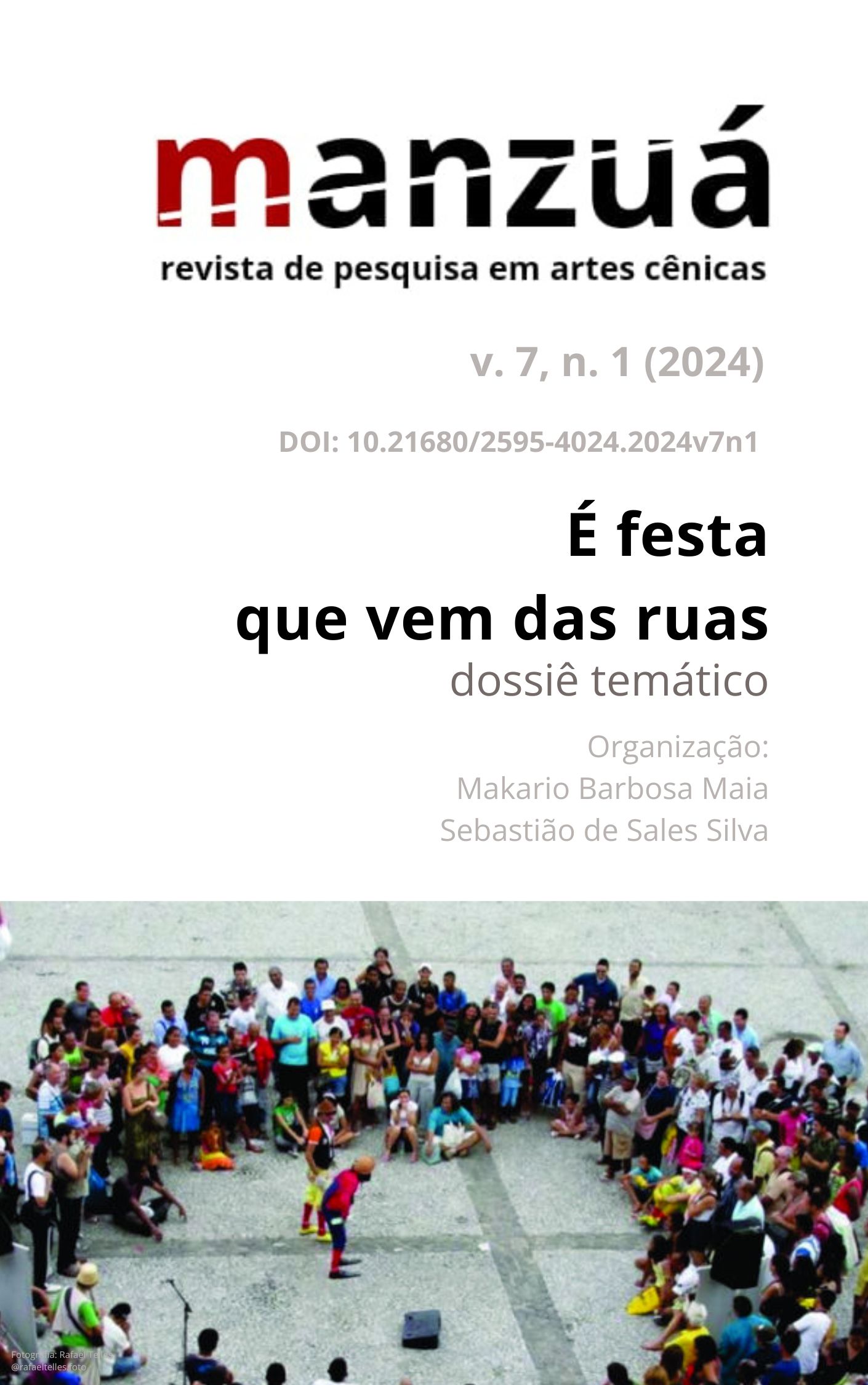Carta aberta para Vovó
A Dança do Cachimbo e do café Preto
DOI:
https://doi.org/10.21680/2595-4024.2024v7n1ID36357Resumo
Mesmo que eu utilizasse de todas as palavras para tentar traduzir o significado do amor que herdei de minha avó, ainda sim, seria falha a tentativa de transcrever o que reside na ancestralidade que me mantém de pé. Este artigo, propõe detalhar o processo criativo de uma performance que foi apresentada em Aracaju-SE, como forma de homenagear minha avó. Apresento cenicamente a grandiosidade das memórias afetivas que foram arriadas pela minha “mais velha” aos Orisás, que por sua vez, possibilitaram a minha condição de existir no mundo. Busco através dessa composição coreográfica, tecer conexões entre ancestralidade e religiosidade através da simbologia corporal (SANTOS, 2002). Nessa descrição, proponho refletir como a força da cachimbada dos pretos velhos, a modelagem do homem pelo barro de Nanã, e minha criação por voinha, puderam possibilitar artisticamente uma dança de transformações, riscada pelo ponto da possibilidade e do inacabado, possibilitando assim, reviver às mandingas recheadas de ensinamentos dos meus antepassados, para produção artística outra do meu amanhã (RUFINO, 2023).
Downloads
Downloads
Publicado
Como Citar
Edição
Seção
Licença
Copyright (c) 2024 Carlos Henrique Vidal Da Silva Vidal

Este trabalho está licenciado sob uma licença Creative Commons Attribution-NonCommercial-ShareAlike 4.0 International License.
Autores que publicam nesta revista concordam com os seguintes termos:
Autores mantém os direitos autorais e concedem à revista o direito de primeira publicação, com o trabalho simultaneamente licenciado sob a Licença Creative Commons Attribution que permite o compartilhamento do trabalho com reconhecimento da autoria e publicação inicial nesta revista.
Autores têm autorização para assumir contratos adicionais separadamente, para distribuição não-exclusiva da versão do trabalho publicada nesta revista (ex.: publicar em repositório institucional ou como capítulo de livro), com reconhecimento de autoria e publicação inicial nesta revista.
Autores têm permissão e são estimulados a publicar e distribuir seu trabalho online (ex.: em repositórios institucionais ou na sua página pessoal) a qualquer ponto antes ou durante o processo editorial, já que isso pode gerar alterações produtivas, bem como aumentar o impacto e a citação do trabalho publicado (Veja O Efeito do Acesso Livre).


 Português (Brasil)
Português (Brasil) English
English Español (España)
Español (España) Français (Canada)
Français (Canada)